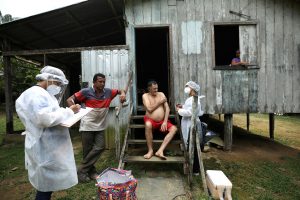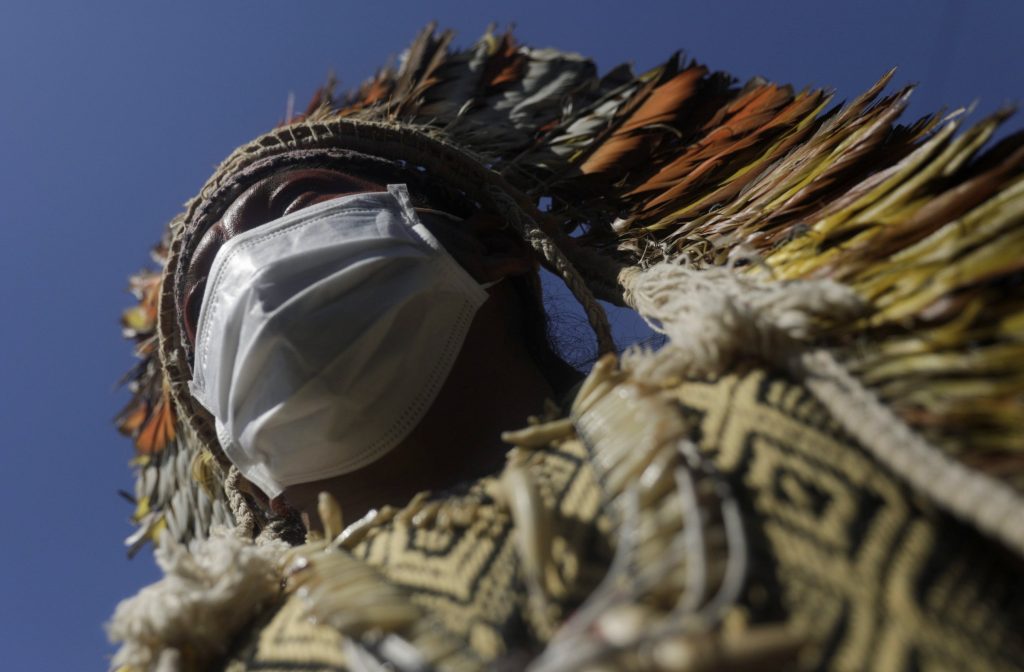ROME — This week marks one year since Pope Francis’ controversial exhortation, “Querida Amazonia” (“Beloved Amazon”), was published as the culmination of discussions that came out of the October 2019 Synod of Bishops for the Pan-Amazon region.
Contentious in part because of the emphasis the document places on the need to enculturate the Catholic faith with Amazonian cultural traditions and customs — some of which, according to critics, reflect elements of pagan worship — the text was a letdown to others because it didn’t take a clear stance on hot-button issues such as the ordination of women to the diaconate or of “viri probati”(“tested”) married men, to the priesthood as a solution to priest shortages.
Instead, “Querida Amazonia” urged missionaries to promote local vocations and for seminaries to be established in the Amazon where the region’s cultural traditions are understood and helped to mature as faith is lived out in the local context.
Yet beyond these two issues, the 32-page document touched on an array of other topics, including care for the environment, the need to respect and protect the rights of indigenous populations, and to make their communities feel more welcome in the Church.
Incidentally, the document’s release came just weeks before much of the world went into lockdown due to the spread of the COVID-19 virus. And so, 12 months later, an interesting thought experiment is this: How different would “Querida Amazonia” look if it were released today, after the year of the COVID-19 pandemic?
Fortunately, we don’t have to speculate about the answer, because we already have one: It’s called “Fratelli Tutti,” Pope Francis’ latest encyclical published last October and dedicated to the topic of human fraternity.
Written in the context of the coronavirus, the encyclical touches on many of the same social issues covered in “Querida Amazonia,” but on a more universal level.

Among other things, “Fratelli Tutti” reiterates Pope Francis’ frequent condemnations of capitalist and neoliberal economic models, as well as nationalist populism, emphasizing instead the need for global solidarity, environmental protection, and the need to prioritize the poor and vulnerable.
It calls for a total revamp of global politics and economics, challenging leaders to create a new model that closes the gap of inequality and promotes an equitable sharing of the earth’s resources.
If “Querida Amazonia” were written today, it would most likely look like a blend of itself, “Fratelli Tutti,” and the pope’s 2015 eco-encyclical, “Laudato Si',” which placed a significant emphasis on the science behind climate-change predictions.
The intersection of faith and science has been a defining quality of Pope Francis’ papacy, and it has also shaped his approach to the COVID-19 pandemic.
The first pope in modern times to be a trained scientist, having graduated from a state-run technical secondary school in his native Buenos Aires with a degree in chemistry, Pope Francis throughout months of lockdown has consistently urged faithful to heed the advice given by health and scientific authorities, and to abide by the precautions they prescribe.
His COVID-19 taskforce has an entire working group dedicated to study, research, and analysis of the coronavirus, and most recently he has urged Catholics to receive the anti-COVID-19 vaccines, calling it an ethical duty in service of public health and safety.
This sympathy for scientific expertise was also a major underlying topic of “Querida Amazonia,” particularly in sections hailing the region’s vast biodiversity as a service to the world in providing some 20% of the earth’s oxygen.
Pope Francis in the text not only warned against environmental degradation, but singled out harmful practices such as slash-and-burn agriculture, where trees are burned so the area can be converted into farmland or used for industrial purposes.
A post-pandemic version of the pope’s Amazon document, then, would most likely have even had more of a scientific edge, particularly when it comes to access to health care.
Given the social impact of the coronavirus, there would also most probably be an increased emphasis on inequality, its causes, and potential solutions, particularly among the indigenous and the risks they face.
Brazil, where around 60% of the Amazon rainforest is located, has been hit particularly hard by COVID-19. Concern has risen among health care officials about a new variant of the coronavirus in the country that experts believe is bypassing the human immune response triggered by the original virus, meaning people could get reinfected.
While Brazil as a whole has been ravaged by the pandemic, indigenous communities have proven to be especially vulnerable, with a mortality rate at least 16% higher than the national average.
The Brazilian city of São Gabriel, while largely spared from the brunt of the first wave of the pandemic, has a large indigenous population and a weak health system, leaving experts concerned that a second wave could be devastating, especially with the new variant in play. Other hard-hit areas such as the state of Amazonas lack sufficient equipment, including hospital beds and oxygen.
Countries throughout the world, poor and rich alike, are also struggling from a crippling economic crisis as part of the pandemic’s fallout, leaving many families jobless, penniless, and some even homeless and unable to afford food for the first time.
With the strain of the pandemic being felt by the entire global community, at every level, Pope Francis would also likely elaborate at greater length on what he sees as potential solutions, one of which, emphasized in “Fratelli Tutti,” is multilateralism.
Pope Francis has always been favorable to multiparty agreements, and generally likes to get as many people on board as possible to fight for a just cause.
As a Latin American pope with a green thumb, and a sympathy for those on life’s margins, there’s little doubt that if Pope Francis were to pen a document on the Amazon today, in the midst of a catastrophic pandemic, he would push for a variety of multilateral agreements that promote solutions to both the environmental concerns of the Amazon as well as the inequalities its people face, particularly indigenous communities.

